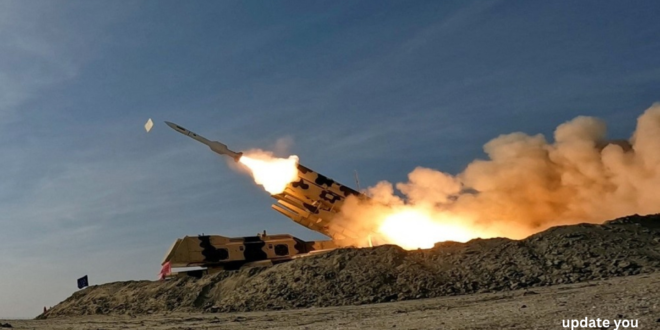Has Iran Attacked Israel Yet? A Look at Their Tense History
As tensions continue to simmer in the Middle East, you may find yourself wondering: Has Iran attacked Israel? To answer this complex question, you must first understand the long and contentious history between these two nations. For decades, Iran and Israel have engaged in a dangerous dance of threats, proxy conflicts, and covert operations. While direct military confrontation has been rare, the specter of war looms large. In this article, you’ll explore the key events and factors that have shaped Iran-Israel relations, examine the current state of affairs, and gain insight into the potential for future conflict.
Background: The Complex Relationship Between Iran and Israel
The relationship between Iran and Israel is marked by decades of tension, hostility, and geopolitical maneuvering. To understand the current state of affairs, it’s crucial to examine the historical context that has shaped their interactions.
A Shift from Allies to Adversaries
Prior to the Iranian Revolution of 1979, Israel and Iran maintained relatively cordial relations. However, the establishment of the Islamic Republic of Iran led to a dramatic shift in their diplomatic stance. The new Iranian regime’s anti- Zionist rhetoric and support for Palestinian causes created a deep ideological divide between the two nations.
Proxy Conflicts and Regional Influence
Over the years, Iran and Israel have engaged in a series of proxy conflicts throughout the Middle East. Iran’s support for groups like Hezbollah in Lebanon and Hamas in Gaza has been a major source of contention. Israel, in turn, has worked to counter Iranian influence in the region, often through covert operations and strategic alliances.
Nuclear Ambitions and International Tensions
Iran’s nuclear program has been a significant flashpoint in their relationship. Israel views a nuclear-armed Iran as an existential threat, while Iran maintains that its nuclear activities are for peaceful purposes. This dispute has led to increased international scrutiny and economic sanctions against Iran, further straining the already tense situation between the two countries.
Iran’s Anti-Israel Rhetoric and Proxy Conflicts
Hostile Declarations and Threats
Iran’s leaders have consistently expressed hostility towards Israel, often calling for its destruction. This antagonistic stance has been a cornerstone of Iranian foreign policy since the Islamic Revolution of 1979. High-ranking officials, including Supreme Leaders and presidents, have repeatedly used inflammatory language, referring to Israel as the “Little Satan” and vowing to wipe it off the map. These provocative statements have heightened tensions and contributed to the ongoing conflict between the two nations.
Support for Anti-Israel Groups
While Iran has not directly attacked Israel, it has engaged in proxy conflicts by supporting various anti-Israel organizations. Tehran has provided financial aid, weapons, and training to groups like Hezbollah in Lebanon and Hamas in Gaza. These militant organizations have carried out numerous attacks against Israeli targets, effectively serving as Iran’s proxies in the region. This strategy allows Iran to maintain plausible deniability while still actively opposing Israel’s existence and interests
Cyber Warfare and Covert Operations
In recent years, Iran has also engaged in cyber warfare and covert operations against Israel. Iranian hackers have targeted Israeli infrastructure, government agencies, and private companies, attempting to disrupt operations and gather sensitive information. Additionally, Iran has been accused of sponsoring assassination attempts on Israeli officials and Jewish targets worldwide. These clandestine activities further illustrate the complex nature of Iran’s hostility towards Israel, extending beyond mere rhetoric to active, albeit indirect, confrontation.
Has Iran Ever Directly Attacked Israel?
While tensions between Iran and Israel have been high for decades, direct military confrontations between the two nations have been relatively rare. However, Iran has engaged in various forms of indirect aggression against Israel, primarily through proxy groups and cyber warfare.
Proxy Conflicts
Iran has long supported militant groups that oppose Israel, such as Hezbollah in Lebanon and Hamas in Gaza. These organizations have carried out numerous attacks on Israeli targets, often with Iranian backing in the form of weapons, training, and financial support. This strategy allows Iran to maintain plausible deniability while still exerting pressure on its adversary.
Cyber Warfare
In recent years, Iran has increasingly turned to cyber attacks as a means of targeting Israel. These digital assaults have ranged from attempts to disrupt critical infrastructure to stealing sensitive information. While not constituting a traditional military strike, these cyber operations represent a significant threat to Israeli security.
Direct Confrontations
Despite the ongoing hostility, instances of direct Iranian attacks on Israel have been limited. Most confrontations have occurred in Syria, where Iran has established a military presence. Israeli forces have repeatedly struck Iranian targets in Syria to prevent the entrenchment of Iranian military assets near its borders. However, these incidents have not yet escalated into full-scale war between the two countries.
What Would Prompt Iran to Attack Israel?
Iran’s potential decision to attack Israel would likely stem from a complex interplay of geopolitical factors, historical tensions, and strategic considerations. Several key triggers could potentially push Iran towards such a drastic action.
Perceived Existential Threats
Iran might consider an attack if it believes Israel poses an immediate threat to its national security or nuclear program. This perception could arise from Israeli military actions, covert operations, or public statements that Iran interprets as aggressive. The assassination of Iranian scientists or cyberattacks on nuclear facilities, for instance, might escalate tensions to a breaking point.
Regional Power Dynamics
Changes in the Middle East’s balance of power could prompt Iran to take bold action. If Iran feels its influence is waning or that Israel is gaining too much strategic advantage, it might view an attack as a way to reassert its position. This could be particularly true if Iran believes it has strong allies or a military edge.
Internal Political Pressures
Domestic factors within Iran, such as economic hardship or political instability, might lead its leadership to consider external conflict as a unifying force. An attack on Israel could potentially rally nationalist sentiment and divert attention from internal issues. However, such a decision would carry enormous risks and potential consequences for Iran on the global stage.
Will Iran Attack Israel in the Future?
The possibility of Iran attacking Israel remains a topic of ongoing concern and speculation in international relations. While direct military confrontation has been avoided thus far, several factors contribute to the persistent tension between these two nations.
Ongoing Hostilities and Rhetoric
Iran’s leadership has consistently expressed hostility towards Israel, often referring to it as the “Zionist regime” and calling for its elimination. This inflammatory rhetoric, combined with Iran’s support for anti-Israel groups like Hezbollah and Hamas. maintains a state of heightened alert between the two countries.
Nuclear Ambitions and International Pressure
Iran’s pursuit of nuclear capabilities has been a significant source of anxiety for Israel and the international community. Israel views a nuclear-armed Iran as an existential threat, leading to increased diplomatic efforts and occasional covert actions to impede Iran’s nuclear program.
Proxy Conflicts and Regional Influence
Rather than engaging in direct conflict, Iran has primarily relied on proxy forces to challenge Israel’s interests in the region. This strategy allows Iran to maintain pressure on Israel while avoiding full-scale war. However, the potential for escalation remains a constant concern. While predicting future actions with certainty is impossible, the complex dynamics between Iran and Israel suggest that tensions will likely persist. Diplomatic efforts, international sanctions, and strategic deterrence continue to play crucial roles in preventing direct military confrontation between these two adversaries.
Conclusion
As you’ve seen, the complex history between Iran and Israel has been marked by escalating tensions, proxy conflicts, and hostile rhetoric. While Iran has not directly attacked Israel militarily, its support of anti-Israel groups and pursuit of nuclear capabilities pose ongoing security concerns. Israel remains vigilant, employing defensive measures and occasionally striking Iranian- linked targets preemptively. The international community continues working to prevent further escalation through diplomacy and sanctions. However, the potential for more direct confrontation persists as both nations vie for regional influence. By understanding this intricate dynamic, you’re better equipped to follow future developments in this critical geopolitical relationship that impacts global stability.
 Update
Update




